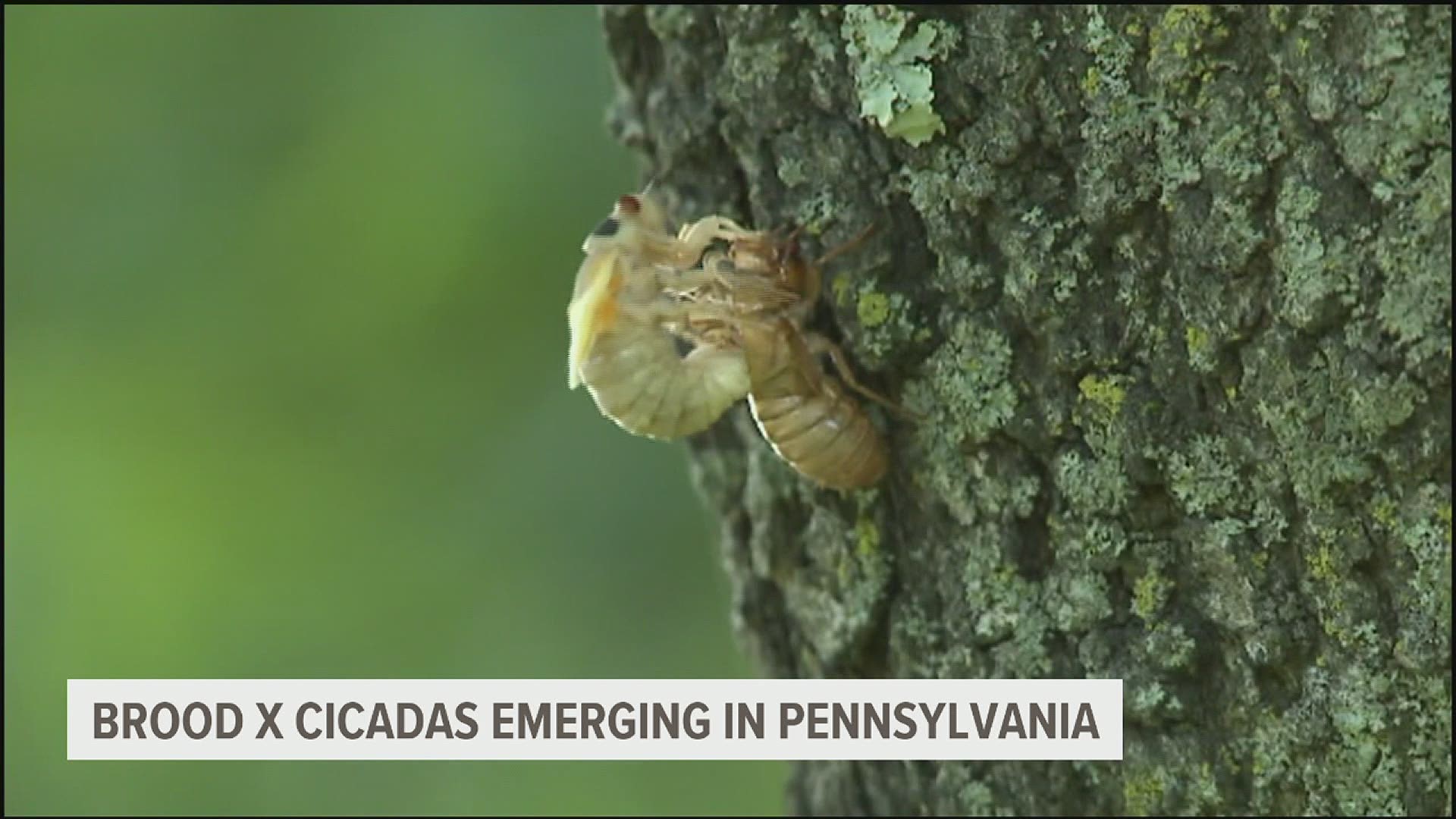YORK, Pa. — Cicadas are starting to emerge in Pennsylvania with sightings reported across the area, including in Elizabethtown, Hummelstown, and Camp Hill.
The Brood 10 cicadas, the largest brood of periodical cicadas, require soil temperatures near 64 degrees for them to surface.
Dr. Michael Skvarla, an assistant research professor of arthropod identification at Penn State, says there will be billions of cicadas coming out this year, including in South Central Pennsylvania.
“In general they should be in that southeastern part of the state. They will be more heavy in areas that are less urbanized, so more natural areas, places with more woods because they typically feed on tree roots," Skvarla tells Fox43. “We’ll see them first. It does take about a week between emergence for the males to get ready and start to sing.”
Skvarla says that cicadas usually arrive all at once. The colder weather at the start of the month likely delayed their emergence a bit, but the warmer weather this week should encourage a big emergence.
When you do start to see cicadas in your yard, you can document the emergence and upload photos to the Cicada Safari app run by Mount Saint Joseph University.
This is an app that is used to track where exactly cicadas are emerging, where people see them, and where the most populated places are. Dr. Gene Kristsky, Dean of Behavioral and Natural Sciences at Mount Saint Joseph University, says they do not have a lot of cicada data in South Central Pennsylvania and encourages everyone to report what they see.
If you do spot cicadas near you, no need to worry about your kids or pets safety. Skvarla tells Fox 43 that the cicadas are completely harmless.
The only situation that could be averse to cicadas are with older, dying trees, or young, recently transplanted trees that could be damaged by cicadas laying eggs in their branches. Overall, large, healthy trees will be okay.
In fact, the insects will actually benefit your local ecosystem, providing abundant nutrients to birds and plants in the area when they die.
And if you aren’t a fan of the Cicadas, they won’t stick around for too long.
Skvarla says they will be gone in two to three weeks and once they're gone we will not see them again for another 17 years.

